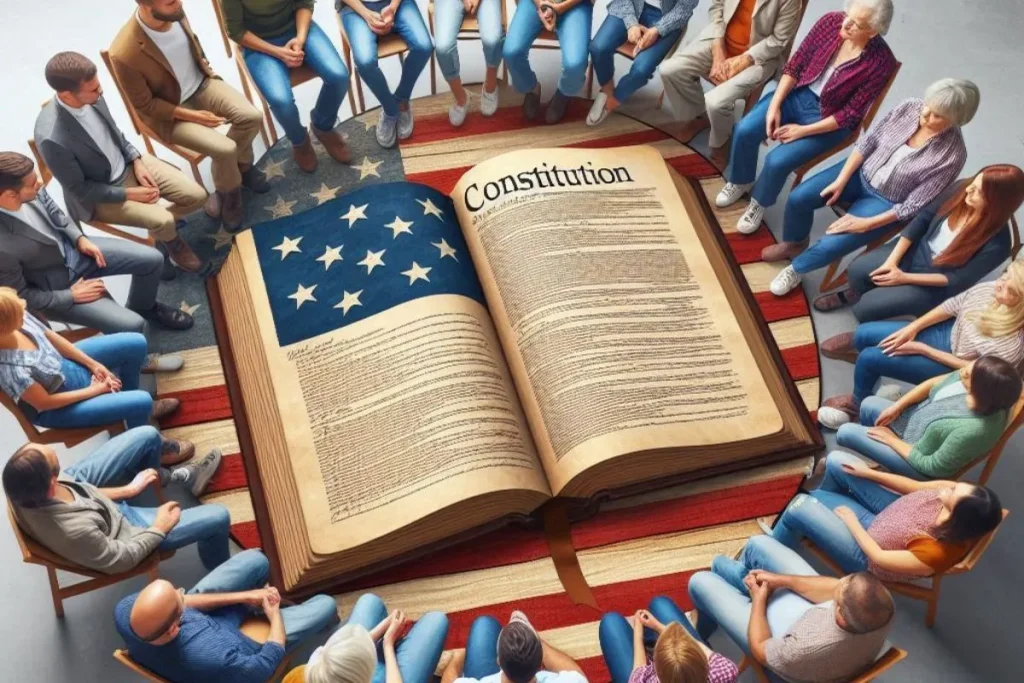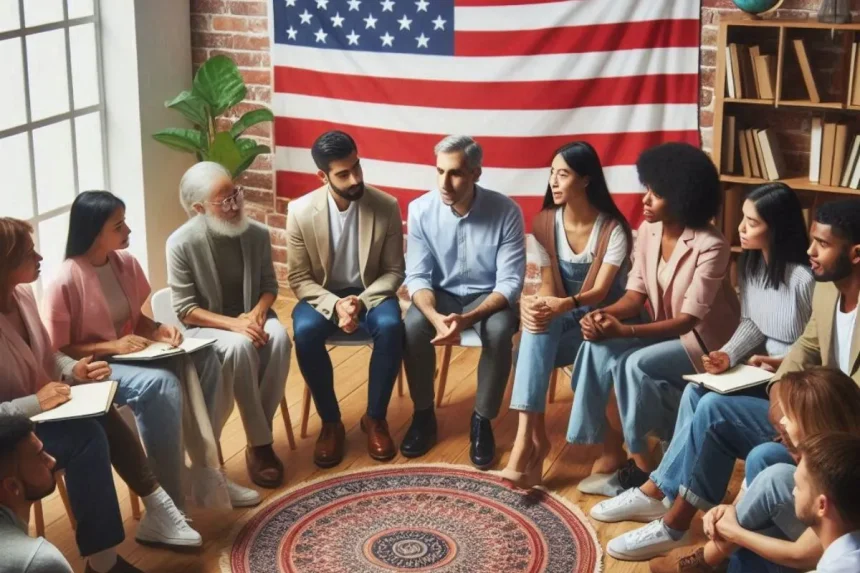Civil liberties are the cornerstone of democratic society, ensuring that individuals have fundamental rights and freedoms protected from governmental overreach. In the United States, these liberties are enshrined in the Constitution, particularly within the Bill of Rights. This article delves into the historical context, key civil liberties, significant Supreme Court cases, and contemporary challenges facing civil liberties in the United States.
Historical Context
The concept of civil liberties in the United States has its origins in the country’s founding documents and the philosophical influences of the Enlightenment. The framers of the Constitution, wary of the oppressive practices they experienced under British rule, sought to create a government that respected individual freedoms.
The Bill of Rights
Adopted in 1791, the Bill of Rights comprises the first ten amendments to the Constitution, explicitly enumerating the rights and liberties of individuals. These amendments were designed to protect citizens from potential government abuses and to ensure a framework for personal freedoms. Key provisions include:
- First Amendment: Guarantees freedom of speech, religion, press, assembly, and petition.
- Second Amendment: Protects the right to keep and bear arms.
- Third Amendment: Prohibits the quartering of soldiers in private homes without the owner’s consent.
- Fourth Amendment: Protects against unreasonable searches and seizures.
- Fifth Amendment: Ensures the right to due process, protects against self-incrimination and double jeopardy, and mandates compensation for eminent domain.
- Sixth Amendment: Guarantees the right to a fair and speedy trial, an impartial jury, the right to confront witnesses, and the right to legal counsel.
- Seventh Amendment: Provides for the right to trial by jury in civil cases.
- Eighth Amendment: Prohibits excessive bail, excessive fines, and cruel and unusual punishment.
- Ninth Amendment: Asserts that the enumeration of specific rights in the Constitution does not mean that people do not have other rights not explicitly stated.
- Tenth Amendment: States that powers not delegated to the federal government are reserved to the states or the people.
Key Civil Liberties

Freedom of Speech and Expression
The First Amendment’s protection of free speech is perhaps the most well-known civil liberty. It ensures that individuals can express their opinions and ideas without fear of government censorship or retaliation. However, this freedom is not absolute. Restrictions can be placed on speech that incites violence, constitutes hate speech, involves obscenity, or poses a direct threat to public safety.
Significant Supreme Court Cases:
- Schenck v. United States (1919): Established the “clear and present danger” test for restricting speech.
- Brandenburg v. Ohio (1969): Refined the standard for speech incitement, protecting speech unless it is directed to inciting imminent lawless action and is likely to produce such action.
- Citizens United v. Federal Election Commission (2010): Affirmed the right of corporations and unions to engage in political speech through independent expenditures.
Freedom of Religion
The First Amendment also includes the Establishment Clause and the Free Exercise Clause, ensuring religious freedom. The Establishment Clause prohibits the government from establishing an official religion or favoring one religion over others. The Free Exercise Clause protects individuals’ rights to practice their religion as they see fit, as long as their practices do not violate public morals or harm others.
Significant Supreme Court Cases:
- Engel v. Vitale (1962): Ruled that school-sponsored prayer in public schools violates the Establishment Clause.
- Wisconsin v. Yoder (1972): Held that compelling Amish children to attend school past the eighth grade violates the Free Exercise Clause.
- Burwell v. Hobby Lobby Stores, Inc. (2014): Allowed closely held for-profit corporations to be exempt from regulations that violate their religious beliefs.
Right to Privacy
Although the right to privacy is not explicitly mentioned in the Constitution, it has been inferred from several amendments, particularly the Fourth Amendment. This right protects individuals from unwarranted government intrusion into their personal and private lives. The concept of privacy has been central to landmark cases involving reproductive rights, marriage, and personal autonomy.
Significant Supreme Court Cases:
- Griswold v. Connecticut (1965): Recognized a constitutional right to marital privacy, invalidating a law that prohibited the use of contraceptives.
- Roe v. Wade (1973): Established a woman’s right to choose an abortion under the right to privacy, although this ruling was overturned by Dobbs v. Jackson Women’s Health Organization (2022).
- Lawrence v. Texas (2003): Struck down sodomy laws, affirming the right to privacy for consensual sexual conduct between adults.
Due Process and Equal Protection
The Fifth and Fourteenth Amendments ensure that individuals are not deprived of life, liberty, or property without due process of law. This means that the government must follow fair procedures and respect all legal rights owed to a person. The Equal Protection Clause of the Fourteenth Amendment requires that individuals in similar situations be treated equally by the law, providing a basis for challenging discriminatory practices.
Significant Supreme Court Cases:
- Brown v. Board of Education (1954): Declared racial segregation in public schools unconstitutional, a landmark case for the Equal Protection Clause.
- Gideon v. Wainwright (1963): Guaranteed the right to legal counsel for criminal defendants in state courts under the Sixth Amendment.
- Obergefell v. Hodges (2015): Legalized same-sex marriage nationwide, affirming the Equal Protection and Due Process Clauses.
Challenges and Controversies
Despite their constitutional protections, civil liberties are often the subject of intense debate and legal battles. Issues such as national security, public safety, and technological advancements can complicate the interpretation and application of these rights.
National Security vs. Civil Liberties
In times of crisis, such as during wars or terrorist threats, the balance between national security and civil liberties becomes a contentious issue. Policies such as the USA PATRIOT Act, enacted after the September 11 attacks, expanded government surveillance powers but raised concerns about privacy and due process. Ensuring security while respecting individual freedoms remains a delicate and ongoing challenge.
Significant Supreme Court Cases:
- Korematsu v. United States (1944): Upheld the internment of Japanese Americans during World War II as a wartime necessity, a decision later criticized and repudiated.
- Hamdi v. Rumsfeld (2004): Recognized the government’s power to detain enemy combatants but affirmed the detainees’ right to due process.
- Boumediene v. Bush (2008): Held that Guantanamo Bay detainees have the right to habeas corpus under the Constitution.
Technological Advancements
The rise of digital technology and the internet has introduced new dimensions to civil liberties. Issues such as online privacy, data protection, and freedom of expression on social media platforms require continuous evaluation and legal adaptation. The government’s ability to access personal data and monitor online activities has sparked significant debate over the extent of privacy rights in the digital age.
Significant Supreme Court Cases:
- Riley v. California (2014): Held that the warrantless search and seizure of digital contents of a cell phone during an arrest is unconstitutional.
- Carpenter v. United States (2018): Ruled that accessing historical cell phone records requires a warrant under the Fourth Amendment.
- Packingham v. North Carolina (2017): Struck down a law prohibiting registered sex offenders from accessing social media sites, affirming the right to free speech online.
Conclusion
Civil liberties are a cornerstone of American democracy, providing a framework for protecting individual freedoms and maintaining a just society. Understanding and safeguarding these rights requires vigilance and a commitment to balancing personal freedoms with the collective good. As society evolves and new challenges arise, the interpretation and application of civil liberties will continue to be a dynamic and vital aspect of the American legal and political landscape.
Get more info: https://www.timelinetale.com/







